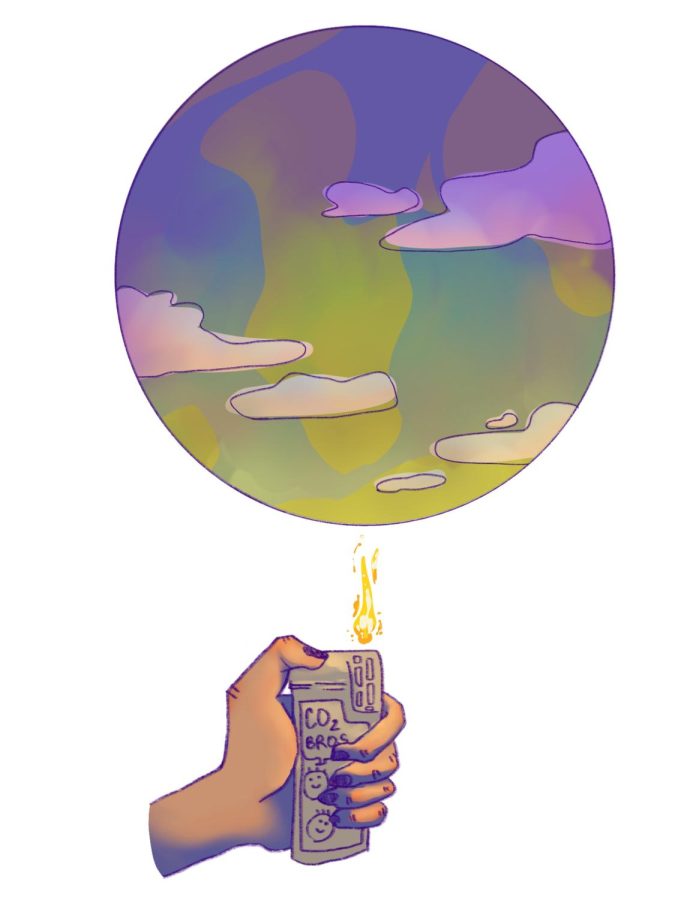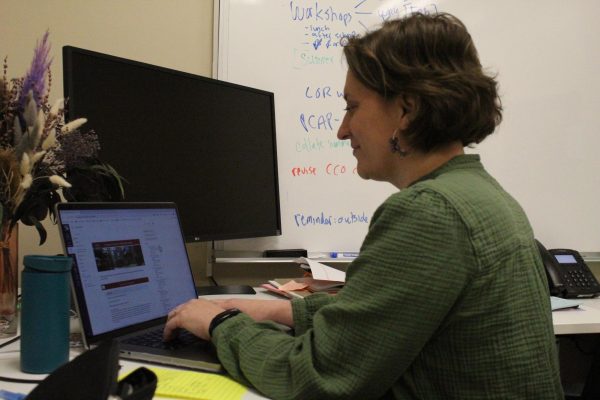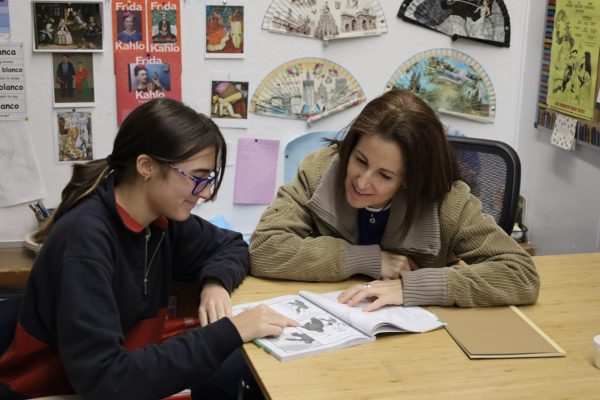Pinewood Battles Climate Change
Scorching wildfires, melting ice packs, destroyed environments, and cities ravaged by natural disasters are all outcomes of the universal issue of climate change. Since 1979, arctic sea ice extent has gone down by 12.6% per year, according to NASA Climate. The consequences of climate change have only gotten more evident as time has passed, and this is visible through the increasing frequency of heatwaves, wildfires, flooding, tornados, hurricanes, and droughts around the world.
In California, we have witnessed similar effects of climate change. According to the California Department of Justice, California has the worst air quality in the United States. The Cal Fire website reports that in 2022 alone, there have been 6,473 cases of wildfires.
California has also been in a drought for around two decades, commonly seen on a smaller scale with water regulation on lawns and fields. Locally, heat waves like the September heat wave broke records in Palo Alto and reached around 115 degrees Fahrenheit.
Pinewood has not yet developed permanent large-scale plans for climate action. However, clubs like the Green Coalition — Pinewood’s environmental conservation club, advised by biology teacher Monica Ventrice and chemistry teacher Sarah Prestwood — are participating in events like the recent San Gregorio Beach clean up.
“Hopefully as the school undertakes significant campus improvements in the next few years, sustainability will be one of the major factors involved in the planning process,” Prestwood said.
Most notably, Pinewood’s Snack Shack began selling reusable aluminum water bottles in place of plastic ones. Water fountains stationed around Pinewood also have a bottle refilling station.
“We are working on generating less waste at school wide events,” Prestwood said. “I am grateful [our school was] able to move away from selling plastic water bottles.”
Anyone looking to act against the negative impacts of climate change is recommended to check out the Green Coalition Club, which meets every other Friday in room 19. For more information, don’t hesitate to contact Prestwood or Ventrice via email.
If the current rate of carbon emissions continues, sea levels will rise significantly and the ozone layer will grow even thinner, causing even more warming of the Earth and dangerous, cancer-causing exposure to UV rays. Now is the time to act, or else the effects of climate change will soon be irreversible.









